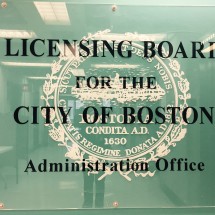Law Offices of John P. Connell, P.C.: When approving the grant or transfer of a liquor license, a local licensing authority (“LLA”) determines the license’s “public need.” Pursuant to M.G.L. c. 138, § 23, a LLA has the authority to approve the grant or transfer of a license “with a view only to serve the public need and in such a manner as to protect the common good.” This “public need” standard does not refer to “need in the literal sense,” but instead invokes an “assessment of public want and the appropriateness of a liquor license at a particular location.” ABCC Decision in re: Murflix, Inc. d/b/a Murphy’s Package Store, 303 Main St., Falmouth, MA (October 10, 2012) (quoting, Ballarin, Inc. v. Licensing Board of Boston, 49 Mass. App. Ct. 506, 511-12 (2000)).
When assessing “public need,” a LLA should look at a variety of factors prior to making its decision. The number of pre-existing licenses in the proposed area, the traffic and noise in the proposed area, the opinions of the neighborhood and the overall reputation of the applicant, are all relevant considerations. A LLA has the discretion to “exercise judgment about public convenience and public good that is very broad, but is not untrammeled.” Id. Accordingly, when a LLA denies the transfer or grant of a license, it must be able to back its denial with evidential support. If not, a LLA’s decision is deemed “arbitrary and capricious” and may likely be overruled by the Alcoholic Beverages Control Commission (“ABCC”) in the event that the license applicant appeals it.
Although a neighborhood’s opinions and concerns regarding the license application are relevant, standing alone they are insufficient for denial of the application. At a license applicant’s hearing, wherein the board votes to deny or grant the license application, mere recitals of adverse testimony by locals will not be adequate evidence for the application’s denial. “Recitals of testimony do not constitute findings.” Id. (quoting Johnson’s Case, 355 Mass. 782, (1968)).
For example, in the matter of Murphlix, Inc. d/b/a Murphy’s Package Store, the licensee was denied his application for transfer of location of his retail package store. At the licensee’s hearing, the LLA pointed to testimonies given from numerous locals opposed to the matter. The LLA equated the testimonies to evidence of a lack of “public need” for a license in the licensee’s proposed location. On appeal, the ABCC overruled the LLA’s decision to deny the transfer, stating the LLA based its decision on a “parade of horribles,” which were inconsistent with the LLA’s own departmental findings. The ABCC found that “the opposition of the neighborhood, albeit an important factor for a licensing board to consider, does not convert the exercise of a licensing board’s adjudicatory function into a plebiscite.” Id. (quoting Ballarin, 49 Mass. App. Ct. at 511-512).
CONTRIBUTED BY COURTNEY MCGEE
© Law Offices of John P. Connell, P.C., 2013

